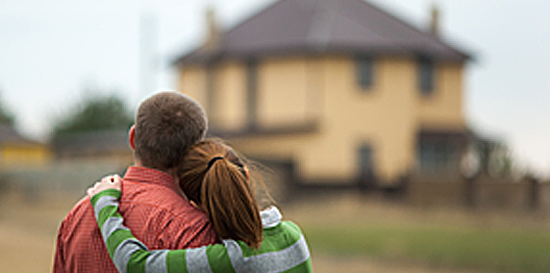Buying a home is more often than not an emotional decision, but you still have to think about the money side writes Maya Fisher-French
When we sold our home in Joburg and moved to Cape Town there were lots of things I was worried about when it came to the kids – would they settle in their new school, would they miss their family and friends? Like any good mother I made sure I was worrying about every eventuality, but then my then six year old completely blind-sighted me with his biggest fear – that we would be renting a property and not owning our home.
For the nearly four years we have been renting, very happily, my son’s biggest desire has been to “have our own home”. Clearly being a couple who like to make life as complicated as possible we decided to build rather than buy (that is another column altogether) and my son is in seventh heaven with regular site visits where he plans out his bedroom in minute detail and asks endless questions about where the TV will go, where he will do his homework and where the dog will sleep.
We will be paying more in mortgage repayments than our current rental and there will be additional homeownership costs but when it comes to owning your own home it is a more emotional decision than a financial one and our son is simply reflecting what most people want – having a place to call your own.
That said, you should not be buying a home only on emotion – there are some serious financial considerations when it comes to buying; this is after all the biggest financial commitment of your life.
Homeownership is an expensive exercise with so many other costs you have not even begun to consider.Due to the transaction costs when buying and selling combined with the current low growth rate in property you would most likely only break even after seven to ten years. That means if you are planning on buying a home and then selling it in the next five years, you may be better off renting – even if it means disappointing your child!
If you have found the house of your dreams, and plan on staying put, before you make that offer make sure you can cover all those hidden expenses. Speak to anyone who has recently purchased a home and they will tell you that those bills come in the tens of thousands – you literally feel like an ATM during the process.
Whatever you do, do NOT take out a further loan to pay these costs, it will drown you financially– it is hard enough adjusting to a mortgage let alone having the added burden of short-term debt repayments.
The real costs
Deposit: As a rule of thumb you should aim to have at least a 10% deposit to put down when buying a home. While some banks will offer 100% mortgage loans for first time homeowners these tend to be for lower value homes and not widely available. A deposit also takes the strain off you financially when it comes to repayments.
Transaction costs: Transfer costs and bond registration fees can be anywhere from 5% to 15% of the purchase price of your property. For example on a property purchase of R2 million you can expect to pay around R125 000 in transaction costs. (www.ooba.co.za has a great calculator to give you an idea of costs)
Deposits on utilities: You will pay a deposit for municipal rates, water and electricity account for your new home. If you use a landline telephone, you can incur costs for transferring your landline or for installing a new landline connection.
Moving costs: You may need to use a moving company and the costs vary depending on how much furniture you have and how far away you are moving. (It is usually cheaper to book your furniture removal on a weekday in the middle of the month, rather than on a weekend at month end)
Running costs: It is important to write up a proper budget so that you understand the monthly running costs: Will there be levies? How much will you pay on electricity and water? What are the rates and taxes on the property? What will it cost to insure? You also need to include a budget for maintenance. If you do not maintain your home it will devalue and you will struggle to sell it and most likely not get back what you paid for it.
The house ownership plan
If you are still in the process of thinking about buying a home, put a financial plan in place. Calculate the running costs and mortgage repayments you will expect to pay and save the difference between what you are currently spending on accommodation and what you will be paying as a homeowner. This saving will help towards a deposit on your property and it has the added benefit of showing the bank that you can afford the property as you are already living on your new budget.

Leave a Reply